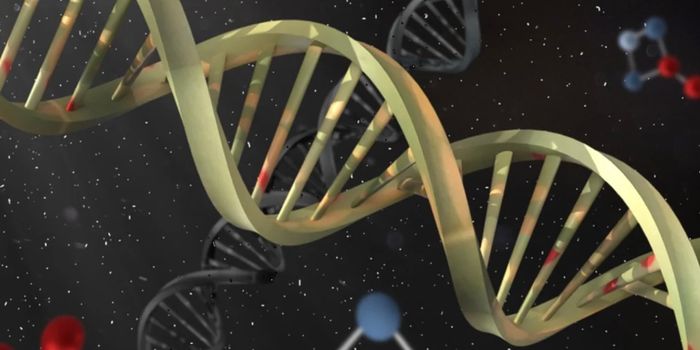Revealing the Striking Differences Between Human & Bacterial Ribosomes
Ribosomes are molecular machines that translate messenger RNA (mRNA), which is transcribed from DNA, into proteins. Scientists have now learned more about ribosomes in nature, and their function. This research has revealed that the ribosomes in bacteria operate very differently from those found in human cells; bacterial ribosomes are much faster than those in humans, but the ribosomes in human cells are far more accurate. This study has also revealed why human ribosomes are slower. The findings have been reported in Nature.
There are many antibiotics that work by targeting the ribosomes in bacterial cells. If cells can't make new proteins, they won't function properly and will die. The accuracy of ribosomes in human cells has been associated with aging and disease. So ribosomes could present a treatment target in many situations, and this study may have implications for both infectious disease and disorders like cancer, the study suggested.
"Bacteria have been very well studied for many decades, but the kind of studies that we do, careful mechanistic studies, have been missing on human ribosomes," said corresponding study author Scott Blanchard, Ph.D., of the St. Jude Children's Research Hospital. "We're very interested in human ribosomes because those are what need to be targeted to find new treatments for cancer and viral infections such as COVID."
Ribosomes use a molecule called aminoacyl-transfer RNA (tRNA) when translating mRNA, a process that takes a few steps.
In this work, the investigators applied advanced technologies to analyze ribosomal events at the molecular level; tools like single-molecule fluorescence resonance energy transfer (smFRET) and cryo-electron microscopy (cryo-EM) deciphered the mechanisms and structures of human ribosomes during translation.
"We wanted to know how quickly a human ribosome can read the genetic code, how quickly it finds the tRNA that's complementary to the mRNA," said co-first study author Mikael Holm, Ph.D., also of St. Jude. This happens about ten times more slowly for human ribosomes compared to bacteria. But the delay adds accuracy, since human ribosomes are known to be more accurate during translation than bacterial ribosomes.
This study revealed that as ribosomes translate mRNA, the biochemistry and biophysics of aminoacyl-tRNA is very different in human ribosomes, and much slower. Structural factors in the human ribosome, and the human elongation factor, eEF1A help ensure that the right transfer RNA moves in where the mRNA directs it, so the protein being made will have the proper sequence and structure. The timing of the structural changes in the ribosomes and eEF1A could explain why human ribosomes are more accurate.
The ribosome chooses the right amino acid, and then checks to make sure the right one has been selected, and this proofreading step slows the process down in humans. There are several drugs that target the proofreading step, but not the initial selection.
Sources: St. Jude Children's Research Hospital, Nature









